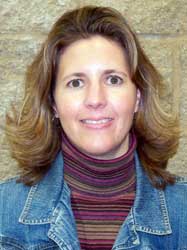Taking advantage of your TAG teacher’s expertise
Supporting the needs of ALL students in the classroom, including those who are advanced or gifted learners can be a challenge. The usual solution to this challenge is to differentiate instruction, right? But how- that is the million dollar question! Luckily, every district has in-house experts in supporting advanced learners, your talented and gifted teacher! The majority of talented and gifted students’ needs can be met in the regular classroom when instruction is differentiated to meet their needs. You find students will be more engaged with the learning when it is differentiated to meet their needs. Talented and gifted teachers are the perfect collaborator to provide you with ideas on how to differentiate instruction to meet advanced learner’s’ needs. They know their students’ strengths and weakness and how they learn best. They are experts in differentiating instruction.
When planning instruction, there are three areas to consider when differentiating instruction, content, process and product.
Content
Provide a variety of reading levels of text on a similar topics. For example through Iowa AEA Online’s Britannica School, you can easily change the level or reading for each article. You can also change or select the reading level in other resources from Iowa AEA Online including ScienceFlix, and SIRs Researcher. Some great free web based resources include Newslea or CommonLit.
Process
Provide students with different options to process a text, e.g. visual learners might draw a picture, graphic organizer or use sketchnoting. An auditory learners might listen to the text and discuss with others, the kinesthetic learners might act out their understandings through a performance.
Product
Provide students with choices on their final product based on their strengths, e.g. a student who is musical might choose to write a rap to demonstrate their understanding. A student who is a strong writer might decide to write a poem or journal or a student who is very logical might create a timeline or chart to demonstrate their understanding.
Tier Assignments
Tiered assignments can be used in all three areas, content, process and product. In tiered assignments, students are provided with options for their final product, from the basic assignments/activities to those with an increased level of challenge or complexity. Keep in mind the basic outcome you want all students to achieve and the different ways students prefer to learn. It is important to note that differentiating for advanced learners does not mean giving them more work, rather the depth and complexity of the work changes to match their needs.
Enrichment, extension or enhancement are three areas to consider when planning content, process or product. While this article refers to advanced and gifted learners, considering all three options are good for ALL students.
- Enrichment- narrowing in on a topic
- Extension- expand the topic to the larger discipline
- Enhancement- expand the topic
| Unit | Enrichment | Extension | Enhancement |
|---|---|---|---|
| Fairy Tales | Cite several examples of Cinderella across cultures. | Compare and contrast how fairy tales are used in different cultures. | Using a current event, create a fairy tale that has purpose and meaning. |
| Division | Suggest multiple ways to solve problems using division. | Define the relationship between multiplication and division. | Log division’s impact on our daily life over the period of one week. |
| Electricity | How is alternating current/direct current used within a school building? | Describe how electric cars work. | What was made possible in our nation due to the discovery of electricity (both positive and negative). |
| The U.S. Constitution | Interpret the 2nd amendment to make sense in the 21st Century. | Study famous/ controversial weapons advocates or arms dealers. | Study how new technological innovations, such as weapons in WWI, have changed how war is fought. |
Rather than struggling on your own and wasting precious planning time, plan with your TAG teacher. Don’t be afraid to ask for their support, they truly are experts in differentiating instruction!
Two great resources to support differentiation in the classroom include the following:
Heacox, Diane, et al. Differentiation for Gifted Learners: Going beyond the Basics. Free Spirit Publishing, 2014.
Heacox, Diane. Differentiating Instruction in the Regular Classroom: How to Reach and Teach All Learners. Free Spirit, 2012.
If you have any questions or are in need of support, don’t hesitate to contact one of our TAG consultants
Kay Schmalen- kschmalen@centralriversaea.org
Ashley Flatebo- aflatebo@centralriversaea.org
Mandie Sanderman – asanderman@centralriveraea.org
 Kay Schmalen Science/Technology Consultant can be reached at kschmalen@centralriversaea.org
Kay Schmalen Science/Technology Consultant can be reached at kschmalen@centralriversaea.org
